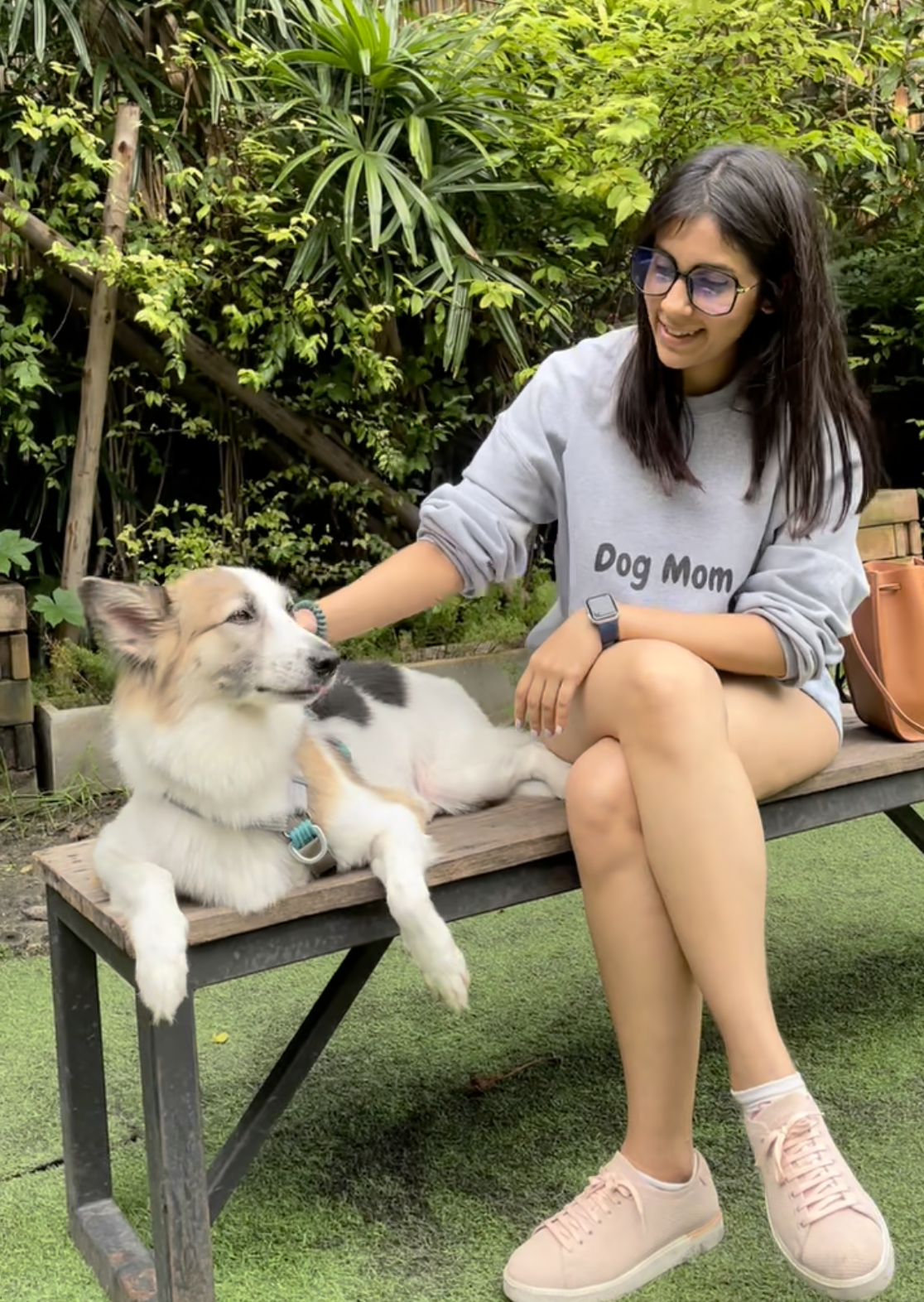About Me
Hi, I'm Neha. Thailand's first certified force free trainer & behaviour consultant.
My journey started in 2020 when I couldn’t find help for Lassie. I adopted her from Soi Dog Foundation. Lassie came with a bunch of problems that didn't emerge until a few weeks later.
I remember standing there, stunned, when Lassie had her first reactive episode. I panicked and didn't know what to do. When I came home, I had a massive breakdown. I felt like I had made a huge mistake adopting her and thought there was something wrong with my dog.
I called up trainers looking for help, but none of them wanted to train Lassie because she's a Thai Bangkaew mix, and they are known to be 'aggressive' (I now know better that they're bred to be guard dogs, so it's completely normal that they're wary of strangers). After months of searching for a trainer, we finally found one. I took her in for a consultation, and the only thing I was told was 'Lassie needs a bit more obedience in her life.' I was naive and took her to class. In the first class, she was told to wear a special collar (Lassie always wore a harness with me).
I was told to yank the collar whenever Lassie did something wrong, like wanting to sniff grass! I wasn't aware of the psychological and physical damage this collar had on Lassie. One day, when Lassie lunged at a cat, I yanked the collar a bit too hard. Lassie whimpered and stopped lunging. The next day, my dad and Lassie were out for a walk, and he told me Lassie couldn't bark; it sounded like she was struggling. I was mortified. What was wrong with my dog? The only change she had was that collar she was told to wear by the trainer. I had unknowingly damaged my dog's vocal cords. No one told me that this was a side effect of using these collars. Why was the trainer not transparent about this? Whenever they demonstrated these collars, they put them around their arms, but on our dogs, we are asked to put them on their necks?
The third wave of the pandemic came, and everything went into lockdown; which meant I wasn't able to attend our training classes. I stumbled across a subreddit called r/reactivedogs. And it finally dawned on me that I was not the only one. I started reading and for 6 months, I only read books related to dog training. I took the Foundation course from Karen Pryor's Academy.
I ultimately made a decision to enrol in the Academy for Dog Trainers also known as the Harvard of Dog Trainers, run by the world-renowned Jean Donaldson, due to its comprehensive education program. Over 2 years, I've learned the science behind behaviour modification, working with fearful & aggressive dogs, teaching obedience behaviours, etc.
I graduated with Honours from the Academy but my education doesn't stop there. I'm constantly attending webinars, classes and seminars from industry experts. I'm up to date with all the scientific knowledge pertaining to dog training and behaviour modification. I am also extremely fortunate to work alongside veterinary behaviourists and vets across Bangkok.
In the spirit of transparency and how I wish Lassie's trainer was honest about the side effects of using special collars, I'll tell you the side effects of using positive reinforcement, force free training:
Your dog might have an upset tummy from all the yummy treats I'm going to give. To combat this, I will ask you to reduce their meals before we train.
Your dog might put on a little bit of weight (if that's a concern, please let me know and I'd be happy to take your dog out for a walk for the last 20 minutes of the training session to get some exercise.)
My promise to you is, I will never ask you to use a shock, prong, choke collar or even a slip lead. I want you to have the relationship you want with your dog.
Neha Dawar CTC, FFCP, SA Pro




